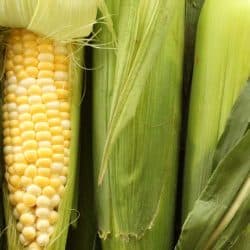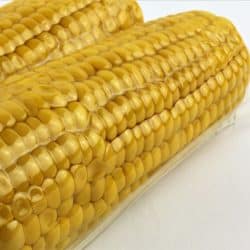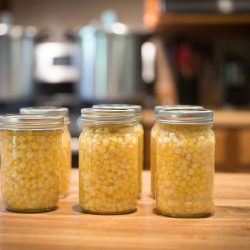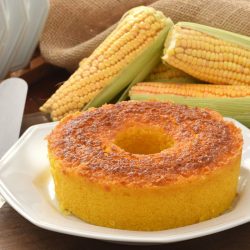Corn is one of the most popular foods in America and can be served in several forms, from corn on the cob to corn kernels. This sweet delicious vegetable is best when eaten fresh, but that isn't always possible. Deciding how best to store your corn to keep it fresh tasting can seem confusing. We have searched many sources to bring you some tips to properly store your corn for the freshest and sweetest taste.
There are sugars in corn that will begin to turn into starch within a couple of hours of picking it. Refrigeration will slow down the sugar conversion process but won't stop it.
Refrigeration only keeps corn good for a couple of days, but if you can't use it immediately, you can also freeze it. We will discuss these methods of corn storage in further detail.
Finding the right way to store your corn is only one of many questions that you may have about this delicious food. You may question the best way to store corn or how to know if it is spoiled. You may wonder if adding milk or sugar to the water that you boil your corn in makes a difference. We will answer all of these questions and discuss other closely related topics—just keep reading!
Refrigerating fresh corn on the cob
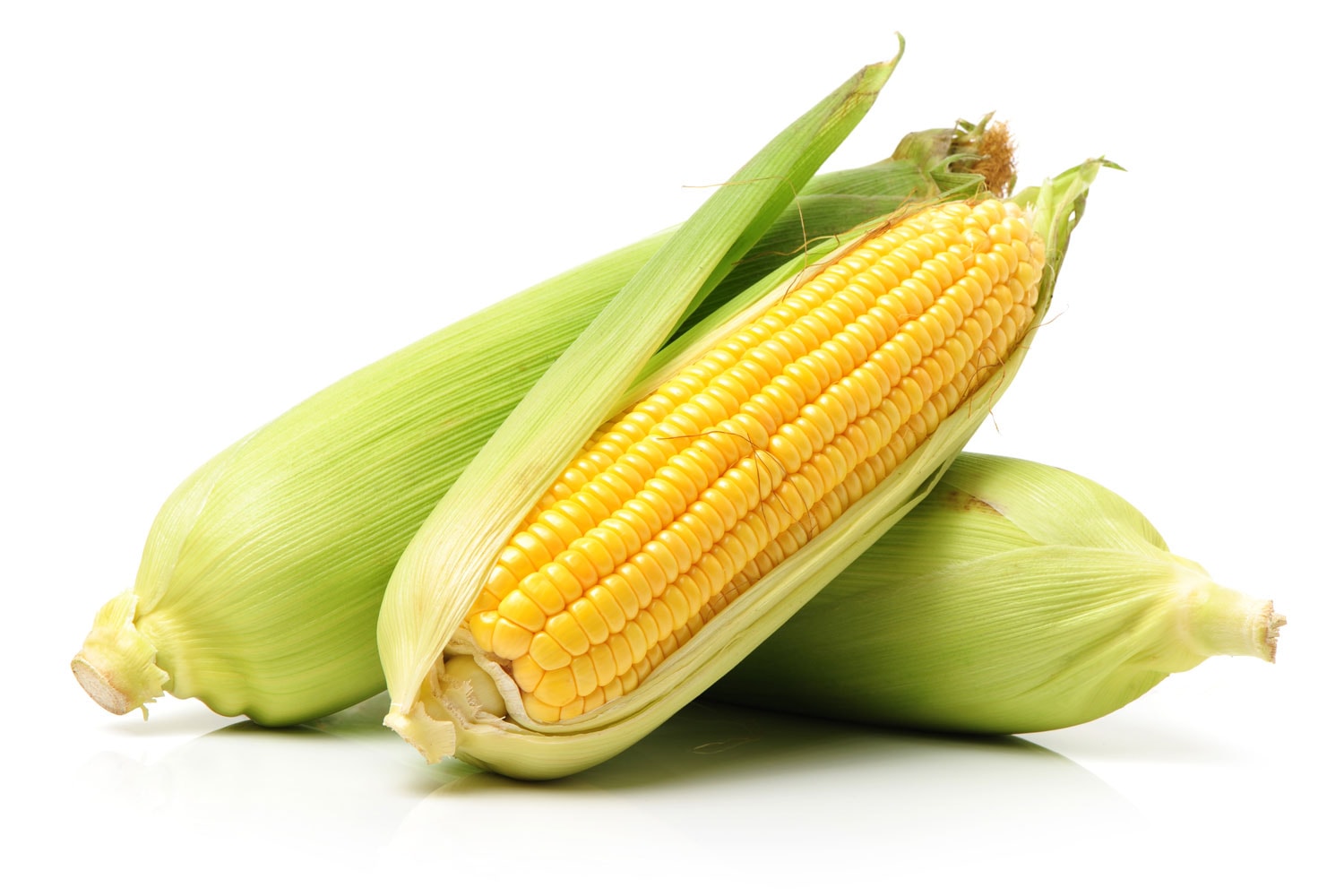
There's nothing better than freshly picked corn on the cob, but not everyone has easy access to a cornfield. Eating corn right after it is picked ensures the best taste but this isn't always possible either.
The natural sugars in corn begin to break down as soon as the corn is picked from its stalk. Pop your corn into a cool refrigerator as soon as you can to slow the breakdown of sugars in the corn.
Tips for refrigerating fresh corn
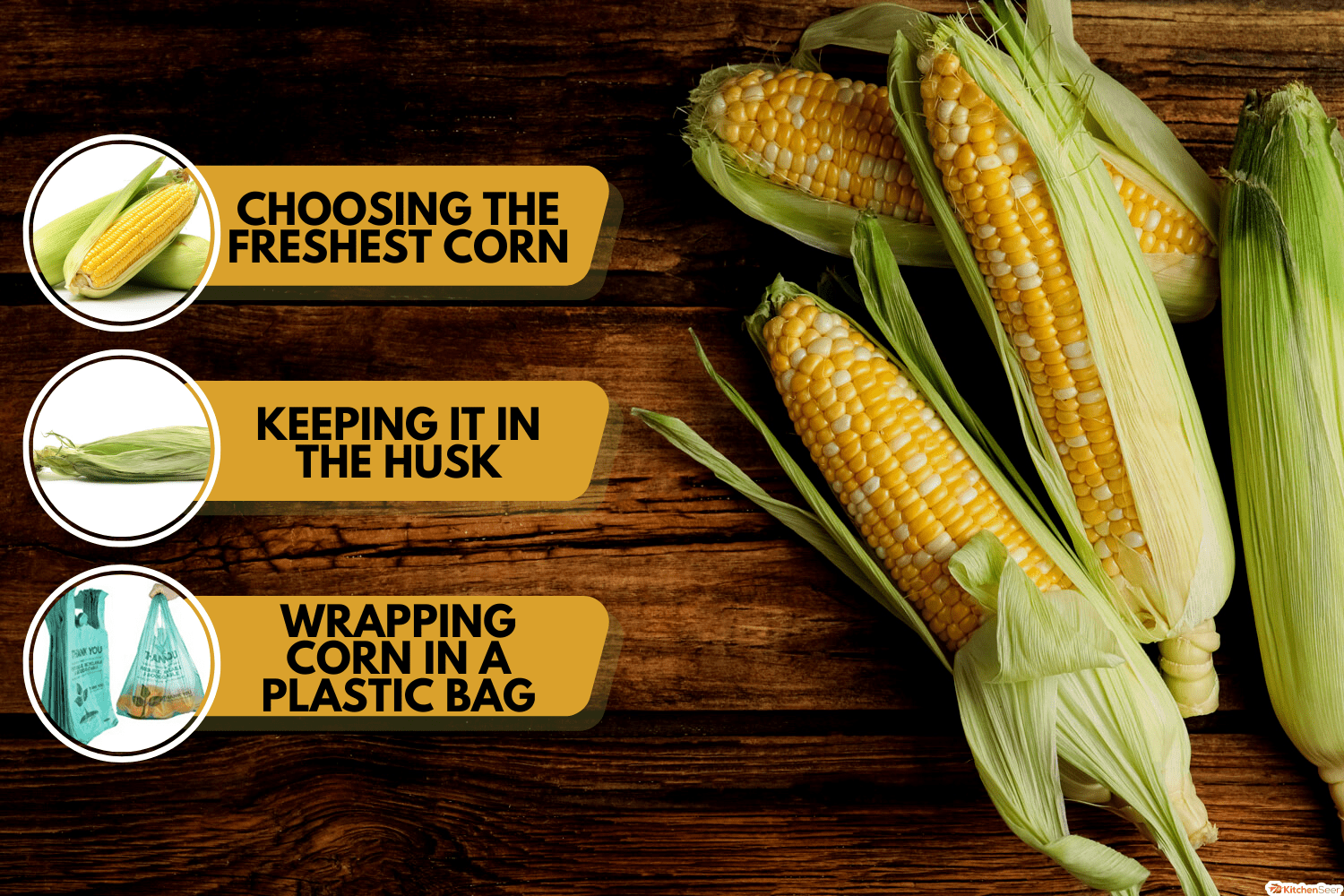
Refrigerating fresh corn is the best method for maintaining the freshness of corn for a short amount of time. Corn can only be kept in the refrigerator for a couple of days, so it is important to do it correctly.
Choosing the freshest corn is the most important step in getting the most out of your refrigerated corn. Protecting the moisture of your corn is the next most important step in proper refrigerator storage.
Choosing the freshest corn
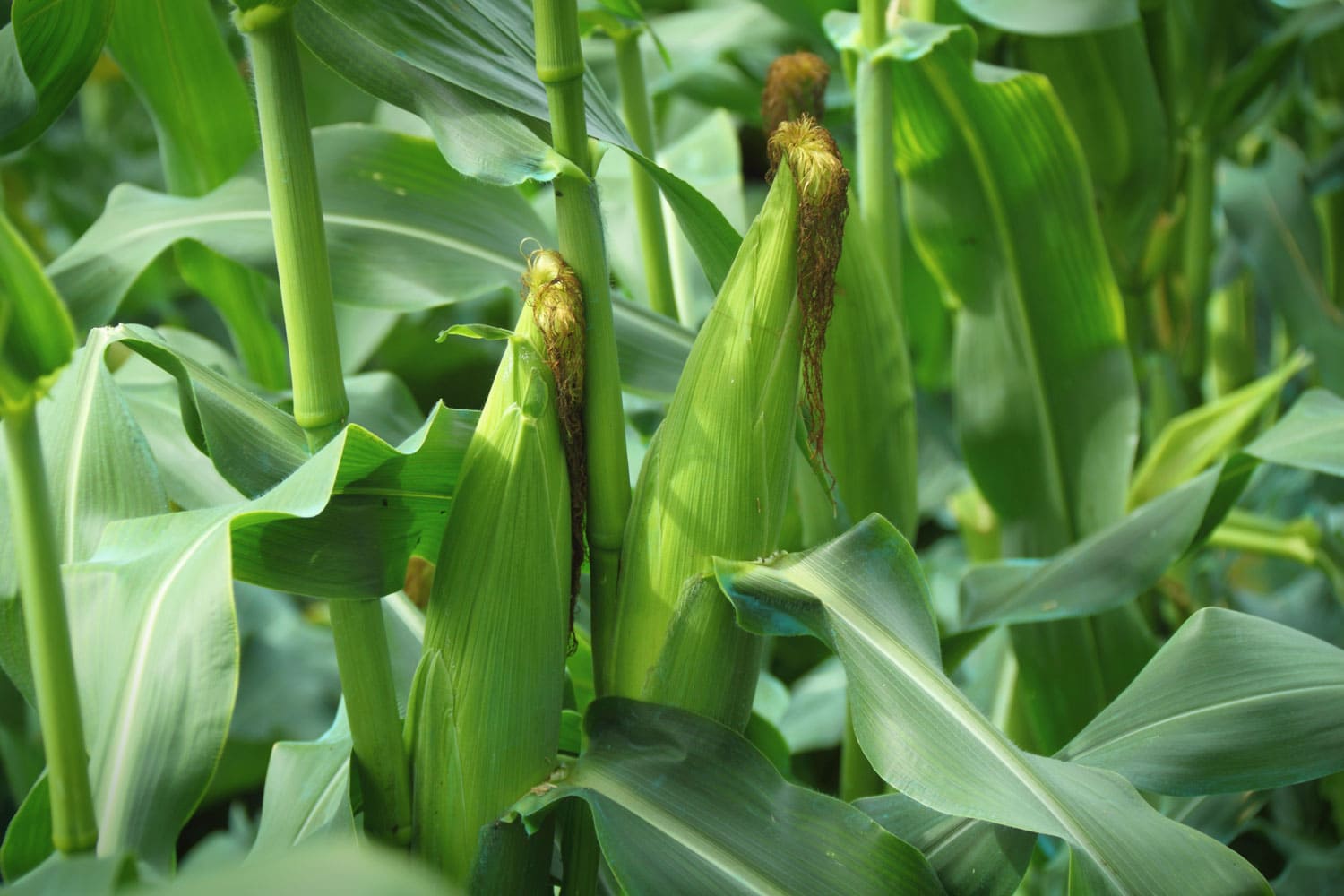
Look for a green tightly-fitted husk when searching for the freshest corn on the cob. Another sign of freshness is the corn silk that sticks out of the top end of the corn, which should be silky and not too dry.
Feeling for soft spots in your corn can also help you spot an ear of corn that isn't so fresh. Healthy and fresh corn cobs should feel firm without soft or mushy spots.
Keeping it in the husk
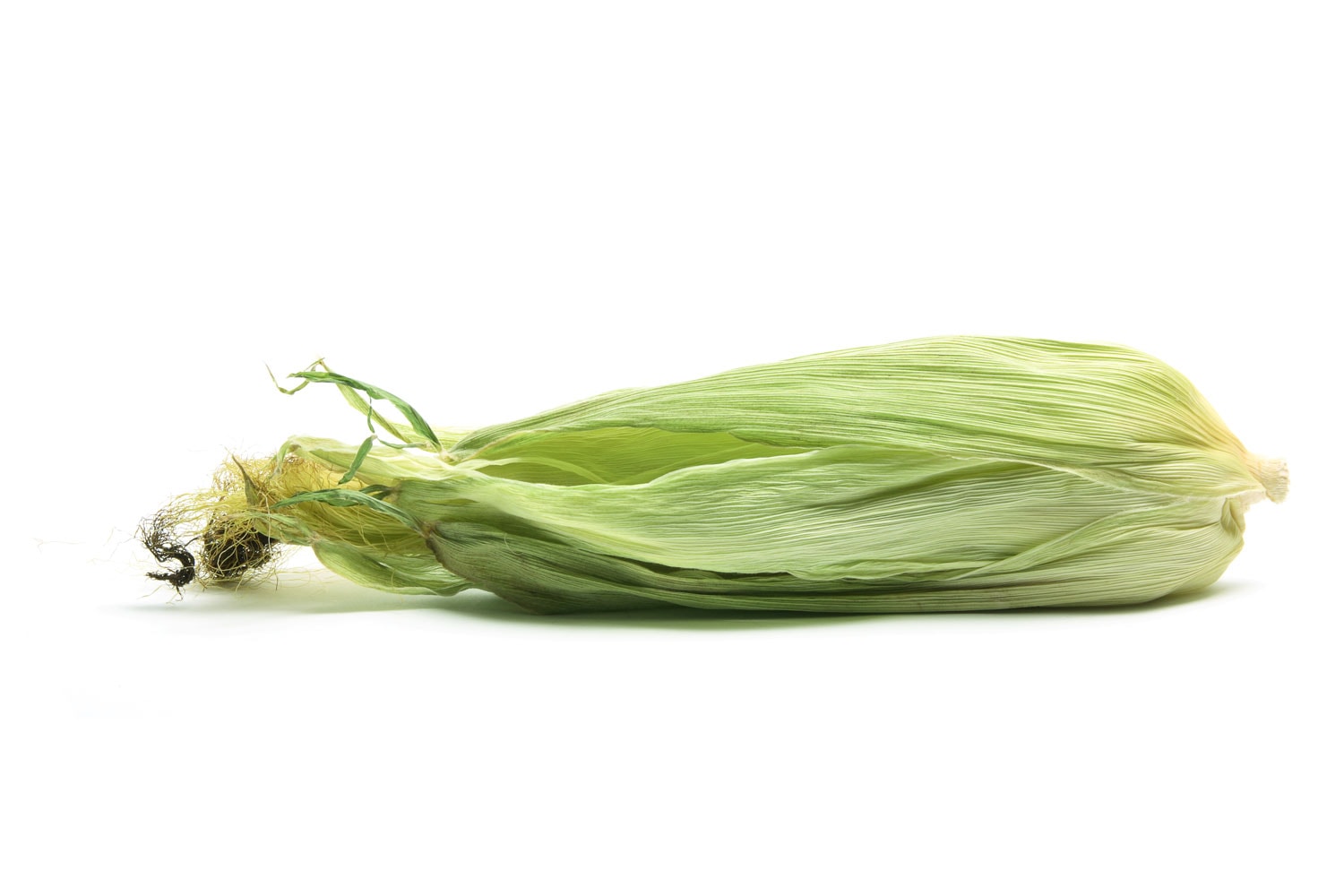
Maintaining the moisture in your corn is key to the freshest and juiciest corn. Luckily, corn comes in its natural covering that keeps the juices in your corn for a fresh and moist vegetable.
Keeping all of the husks on your ears of corn may be a bit space-consuming in your refrigerator. If this is a problem, leave just the last couple of layers on the corn to achieve the same results.
Wrapping corn in a plastic bag
In addition to keeping the husk of the corn on, wrapping your corn in a plastic bag adds an extra layer of moisture protection. Air circulation in your bag is key to preventing mold growth on your corn.
Plastic grocery bags are the perfect bag to protect your corn from drying out or growing mold from too much moisture. Freezer or storage bags can also help with moisture but will need to be left open.
Click here to find these plastic grocery bags on Amazon.
Freezing corn
Corn stored in the freezer will last longer than storing it in the refrigerator, making it better for long-term storage. Your frozen corn should stay good to eat for about 6 months to a year.
There are a few different techniques you can use to freeze corn for optimal results. We will discuss freezing blanched and unblanched corn on the cob and kernels in further detail.
Freezing blanched corn on the cob
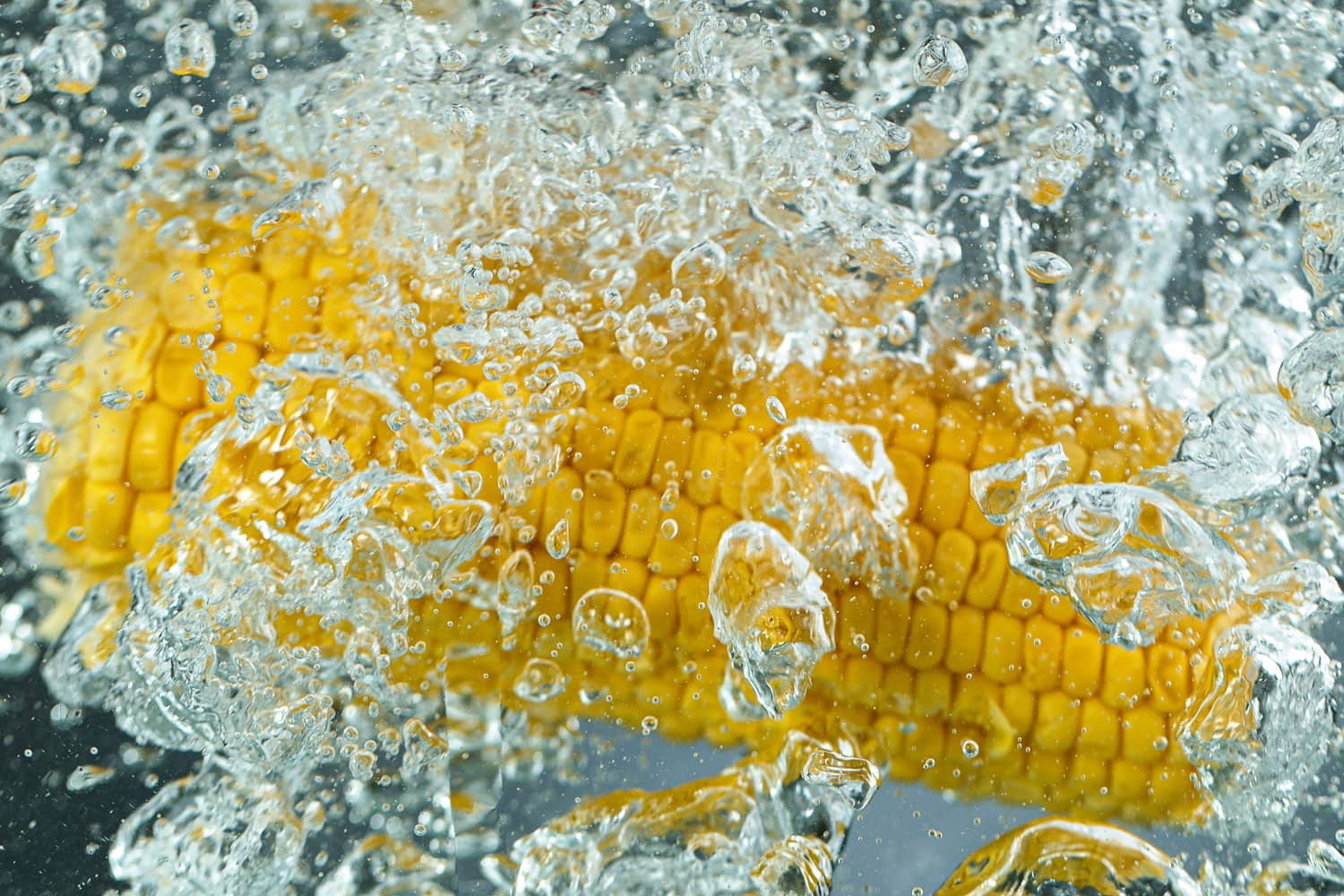
Shuck your corn on the cob and remove the silk strings before placing it in boiling water briefly. You should then blanch the corn by dipping it in a cold water bath, which quickly stops the cooking process.
Place your corn cobs on a baking sheet in the freezer to keep them from sticking together before placing them in an airtight plastic bag. Label your storage bag with the date and use it within 6 months to a year.
Click here to find these food storage bags on Amazon.
Freezing unblanched corn on the cob
Corn does not necessarily need to be put through the boiling and blanching process to be frozen. You can freeze unblanched corn on the cob in much the same way that you freeze blanched corn.
Shuck your corn and remove any of the corn silk before freezing. Place the corn cobs in freezer bags, remove the air, and label them with the date before placing your corn cobs in the freezer.
Freezing blanched corn kernels
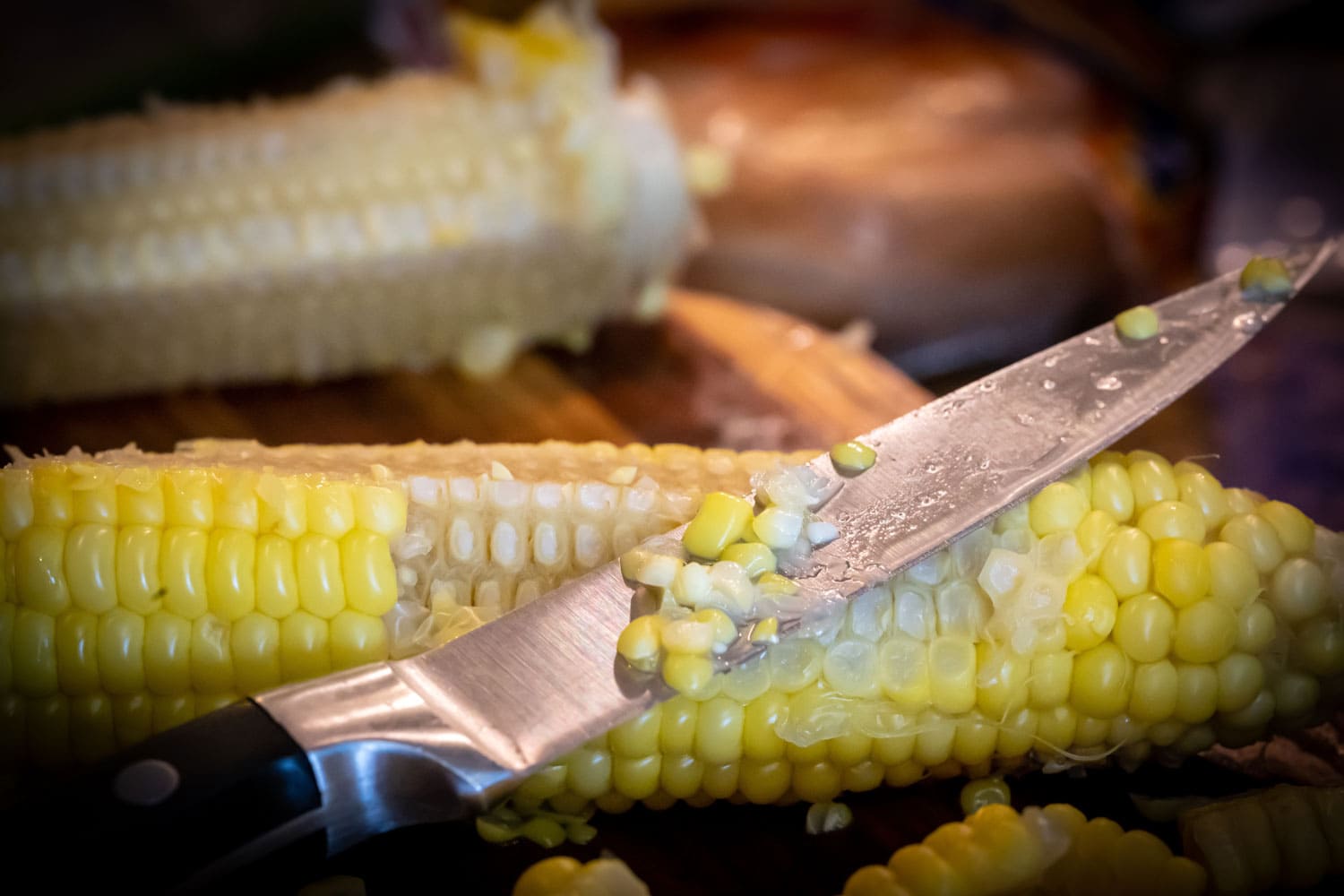
The steps to freezing blanched corn kernels are almost identical to those of freezing blanched corn on the cob. You will still want to shuck your corn and place the cobs of corn briefly in boiling water.
The cobs will also still be placed into a cold water bath to blanch. After the blanching process, cut corn kernels from the cob before placing them in a single layer within an airtight freezer bag in your freezer.
Freezing unblanched corn kernels
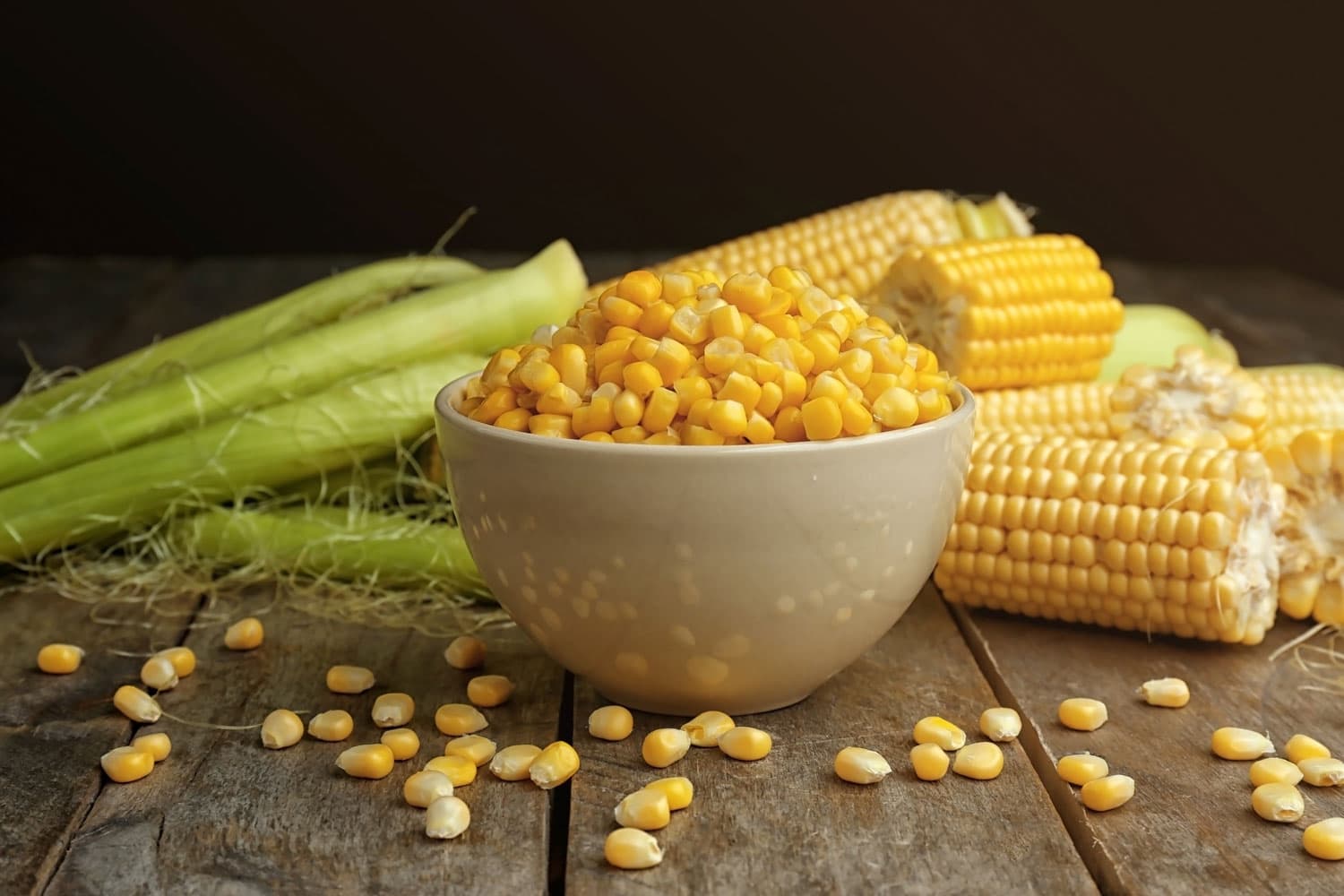
Freezing unblanched corn kernels is another easy way to store corn. Kernels can be cut from the cob, placed into airtight bags, and placed straight into the freezer.
Some experts recommend freezing corn kernels in a single layer to allow them to breathe and prevent them from sticking together. Kernels can also be frozen on a cookie sheet before being placed in bags.
Click here to find this corn stripper on Amazon.
What's the best way to store corn on the cob?
Because corn is typically only in season from about May to about August or September, storing your corn is key. Maintain the fresh sweet taste of corn by tossing it in the refrigerator as soon as you can.
Refrigeration will slow the process of sugars within the corn running into starches but is only a temporary measure. Freezing corn allows for longer storage and protects the freshness of your corn.
How do you know if corn on the cob is spoiled?
Spoiled corn is no joke and can even make you or your family sick. Corn on the cob can smell moldy or rancid or feel soft or slimy when it is spoiled. If it does, it should be quickly discarded.
If there is any mold on the corn, it should also be thrown out. Using your corn as soon as you buy it is the best way to prevent it from spoiling.
Why do you put milk in water when boiling corn?
Boiling corn is the best cooking method to maintain the sweetness of this vegetable. To further enhance the sweet taste of boiled corn, boil it in milk or milk and water instead of just plain water.
Using milk to cook your corn will also infuse each kernel with a subtle buttery flavor. Milk will also add a creamy juicy texture to your boiled corn.
Should I add sugar to my corn water?
Salt is added to boiling water when cooking many foods, corn should not be one of them. Salt can toughen the corn by dehydrating the kernels.
Adding sugar to your water before boiling it will give your corn a bit of added sweetness. Using brown sugar will also add a hint of molasses flavor.
Final thoughts
Corn is a unique vegetable with an unmatched juicy texture and sweet taste. Because fresher corn tastes sweeter, proper storage of your corn is key.
With several methods to choose from, finding the perfect storage process for you can be a daunting task. We hope that the above article has helped you to find the best way to properly store your corn.
Before you go, here are some other articles that may be of help to you:
How To Keep Corn From Turning Brown When Canning
How Long Does Corn Last In The Freezer?
Is It Better To Grill Corn With Or Without The Husk?





